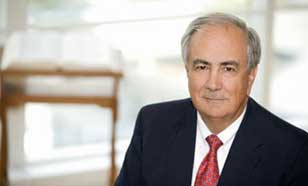A recent Delaware decision highlights a trap for the unwary adviser to a business entity. The decision holds that helping a business get started may create fiduciary duties owed by the adviser, even if he or she is not acting in one of the roles that are normally thought of as creating such duties, such as serving as a lawyer or trustee. Because those fiduciary duties limit what the adviser may do for those other than his or her immediate client, it is important to recognize when those duties exist.
The background to this decision in Bennett v. Lally, C.A. No. 9545-VCN (Del. Ch. Sept. 5, 2014), helps illustrate this problem. Mark S. Lally agreed to help establish a medical marijuana facility in Delaware, at the request of A. Judson Bennett and Jeffrey Siskind. When Lally later helped another business establish such a facility, Bennett and Siskind sued Lally. They sought both to stop Lally from working for their competitor and to recover damages. Lally asked the court to dismiss their suit, arguing that he was simply an independent contractor/adviser free to pursue his own interests and without any fiduciary duty to refrain from competing with Bennett and Siskind. The Court of Chancery denied Lally’s motion to dismiss.



